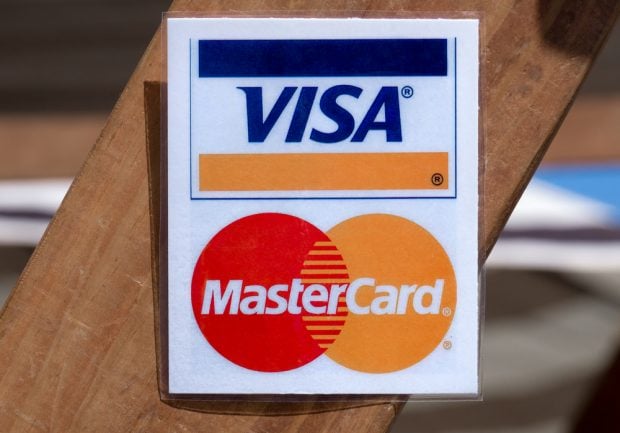It might be unusual, but all sides in the Federal Reserve'sdebit interchange regulation battle have urged the court to leavethe now-overturned regulation in place pending appeal.
|U.S. District Court Judge Richard Leon dispatched two-thirds ofthe Federal Reserve's current debit interchange regulation on July31, agreeing with the opinion of the case's merchant plaintiffsthat the Fed had failed to follow the law in developing theregulation.
|But Leon refrained from executing his decision until he heardfrom all parties to the case about what they believed the bestcourse of action would be.
|The Fed appealed Leon's decision on Aug. 21. This week all sidesurged him to leave the rules governing debit caps and providernetworks in place until further appeals are exhausted.
|Related:
- Judge Throws Out Fed's Debit Cap
- CUNA, NAFCU Assail Ruling
- Ruling Could Force CUs to AddProcessors
- Aug. 14 Hearing Set on CapRuling
- Financial Researchers Rate Chances ofAppeal
- Judge Gives Fed One More Week
- Doubts Whether CUs Would Pay
- Fed Gets Another ChanceWednesday
- Flawed Ruling Boosts Fed's Odds: GuestOpinion
- Fed, Merchants Join on ExpeditedAppeal
- Trades Make Their Case in Debit CaseBriefs
“The merchants fully support eventual (sic) vacatur ofthe existing Federal Reserve rules governing debit card interchangefees, but only when a replacement rule is in place properlylimiting the interchange fee to the 'reasonable and proportional'amount actually contemplated by the Durbin Amendment,” themerchants requested in their brief to Leon.
|Dropping the rule now would allow the credit card networks tojack up the interchange fees they charge on behalf of their bankclients, the merchants groups argued.
|“Recent experience indicates that they likely would increasethese fees substantially if left unregulated during the pendency ofthe appeal,” their brief argued.
|“Thus, the plaintiffs vastly prefer the status quo – in whichdebit card interchange fees cannot be more than the22-cent-plus-5-basis-point fee allowed by the current rule – to anunregulated 'free for all,' which would likely subject merchants tointerchange fees well in excess of the Fed's current standard,”they concluded.
|The merchants acknowledged that the court was surprised by theirrecommendation but maintained that recent experience has taughtthem that debit interchange rates almost always rise and neverdecline.
|“Thus, the only direction the fees would move if the existingrule is vacated before a new rule takes effect is up,” themerchants wrote.
|Next Page: Doubts on Authority
||Further, they doubted whether a court would have the authorityto get the Federal Reserve to order any additional money they paidin debit interchange before a new rule was put into place be givenback to them.
|For its part, the Fed also supports keeping the existing rule inplace, arguing first that doing so while it appealed Leon'sdecision meets the requirements of the Administrative ProceduresAct and, secondarily, getting rid of the existing rule would leavein place the precise situation Congress sought to avoid inregulating debit interchange in the first place.
|“These statutory provisions require the issuance of regulationsby the (Fed) in order to effectuate the limitations the statuteseeks to impose. Thus, if the regulations here were vacated by thedistrict court, there would be no legally binding standards fordetermining the permissible amount of interchange fees an issuercould receive with respect to a debit card transaction and nolimitations on exclusive routing restrictions imposed by issuersand payment networks on debit card transactions. Such a lack ofrestrictions would plainly frustrate the will of Congress and harmthe Board, the plaintiffs, and the public,” the Federal Reservecontended.
|In similar cases, the Fed argued, overturning an existing ruleusually meant that a previous regulation that had been supersededwould go into effect while litigation continued.
|But in this case, because this rule is the first one, there isno superseding rule to fall back upon, the Fed pointed out.
|In a supplemental brief, the Fed also argued that the courtlacked the authority to order the Fed to put a replacement debitrule into place while Leon's July 31 decision was beingappealed.
|The Federal Reserve based its opinion on previous cases in whicha district court was declared to have very limited jurisdictionover parts of a case that were being appealed. Further, even if adecision from the lower court were upheld, the lower court wouldhave the authority to overturn the existing regulation and wouldnot have the authority to require what would come next.
|Although they had not been direct parties in the original case,Leon allowed a coalition of financial institutions and financialinstitution trade associations, including CUNA and NAFCU, to weighin on the discussion since they issue debit cards.
|In its brief, the coalition agreed with the Fed that the courtlacked the authority to require a new rule be put into placepending the appeal and also argued that issues which would need tobe addressed would be complex and expensive for both the regulatorand the industry.
|“[S]eparate from the question of legal authority, the courtshould not require an
|interim or expedited rule,” the coalition contended. “Arush to issue a new rule will harm all affected interests,including consumers, and threaten the effective functioning,stability and security of the electronic debit card paymentssystem.”
Complete your profile to continue reading and get FREE access to CUTimes.com, part of your ALM digital membership.
Your access to unlimited CUTimes.com content isn’t changing.
Once you are an ALM digital member, you’ll receive:
- Critical CUTimes.com information including comprehensive product and service provider listings via the Marketplace Directory, CU Careers, resources from industry leaders, webcasts, and breaking news, analysis and more with our informative Newsletters.
- Exclusive discounts on ALM and CU Times events.
- Access to other award-winning ALM websites including Law.com and GlobeSt.com.
Already have an account? Sign In
© 2024 ALM Global, LLC, All Rights Reserved. Request academic re-use from www.copyright.com. All other uses, submit a request to [email protected]. For more information visit Asset & Logo Licensing.









